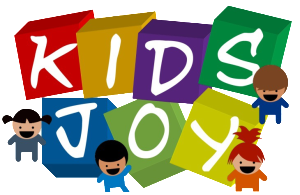Helping your child learn good dental hygiene is an important life skill. In some ways, it’s nice that children get to practice good dental habits on their baby teeth, before the permanent teeth come in.
Most children start getting their first tooth somewhere between 6 – 12 months, and then slowly have all their 20 baby (primary) teeth come in by about age 3. Between the age of 6 – 13 the baby teeth fall out and the permanent (secondary) teeth will start coming in.

You can start oral hygiene right from infancy by wiping the baby’s gums with a damp washcloth after the baby drinks their milk. Once the teeth start erupting, you can use a soft baby toothbrush (finger brushes with small silicon bristles) and water. At this stage, you shouldn’t use any toothpaste.
When the child is about 18 months, you can start with a low fluoride toothpaste (special children’s toothpastes are available according to age) and a child’s soft bristled brush. Use only a small quantity of toothpaste – about the size of a rice grain. Encourage your child to spit out when they finish brushing. Don’t expect them to gargle. If you give them water at this stage, they are likely to swallow more toothpaste. Only start giving them water to gargle when you are confident that the child is able to keep the water in their mouth and then spit it out. When the child is older, you can use a pea sized quantity of toothpaste on their brush. Children should be brushing their teeth twice a day – once in the morning and once in the night.

How do I prevent my child from getting cavities?
- Avoid high sugar foods and drinks
When your child has food or drinks with sugar, it’s a breeding ground for bacteria in the mouth. Bacteria produces acid which attacks the child’s teeth and cause cavities. As much as possible avoid sugary items like sweets, biscuits, cakes, drinks, etc. If your child does consume it, get your child into the practice of drinking water immediately after to wash some of it away, so that it doesn’t stay on the teeth.
- Brush teeth twice a day
Use a low fluoride toothpaste and help your child gets into the habit of brushing their teeth twice a day. The front teeth should be brushed up and down, and the back teeth should be brushed front and back, inside and outside. The child can end by brushing their tongue and then gargling and spitting out. Click here to show your child a video of how to brush their teeth.
- Parents must supervise the child’s brushing
Ideally the parent must brush the child’s teeth till they are about 3 – 4 years of age. Once they are able to brush their own teeth, it’s important for the parents to supervise to see that they are doing it properly. If the child is small, and fusses, try giving the child the brush for a while and then end by completing the brushing process, so that the teeth are properly cleaned.
- Do not give your child milk to drink before they sleep
Many parents are surprised that one of the biggest cause of cavities in small children is giving them milk to drink before they sleep. Milk contains sugar which coats the teeth and cause bacteria and eventually causes the teeth to rot. If your child does drink milk in the night, make sure they drink some water and brush their teeth after they drink their milk. If your child drinks from the bottle, wean them off the night milk feed by the age of 1. Many children who drink milk from the bottle, let the milk just stay in their mouth while they are sleeping. The same goes for breast milk. Once your child’s teeth have come in, avoid letting your child feed and sleep. It’s very important that the child’s teeth are brushed after they have had their milk.

How do I get my child into the habit of brushing their teeth?
- If you have been brushing the child’s teeth right from the time they are a baby, there’s a high chance that your child will automatically get into the habit as they grow older.
- Buy them a nice brush and toothpaste. There are several interesting brushes as well as flavoured toothpastes, which your child will enjoy.
- Sing a song (e.g. This is the way we brush our teeth, brush our teeth, brush our teeth. This is the way we brush our teeth, so early in the morning.) or play a game to make the brushing process exciting.
- Put a timer, so your child will brush for atleast 90 – 120 seconds, and then have a fun buzzer ring at the end.
- Make an incentive chart where your child has to tick every morning and night when they brush their teeth, and then get something special at the end of the week.
- Show them videos or read them a book about how important it is to brush their teeth and the dangers of not looking after their teeth.
Visit the dentist every 6 – 12 months, after the age of one. The dentist will assess if the child’s teeth are healthy and if the child needs any supplements or is in danger of cavities.



Recent Comments